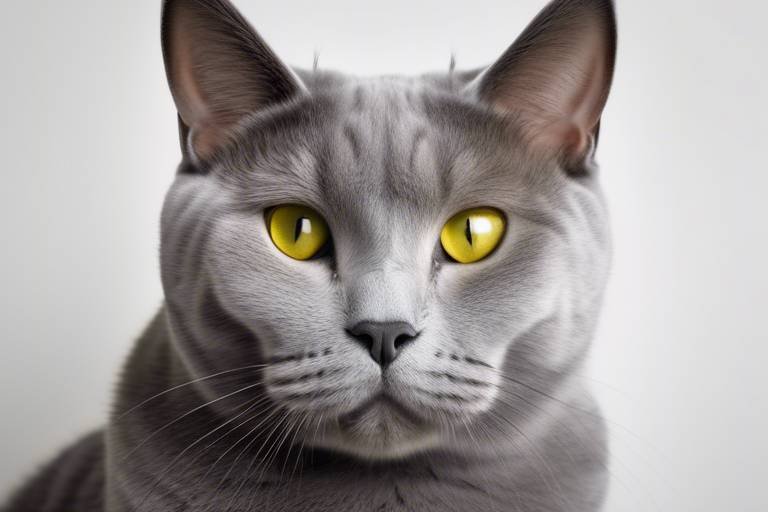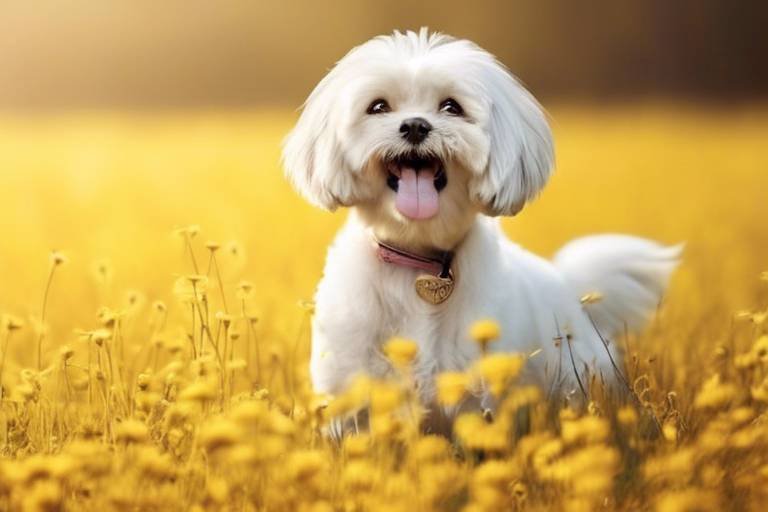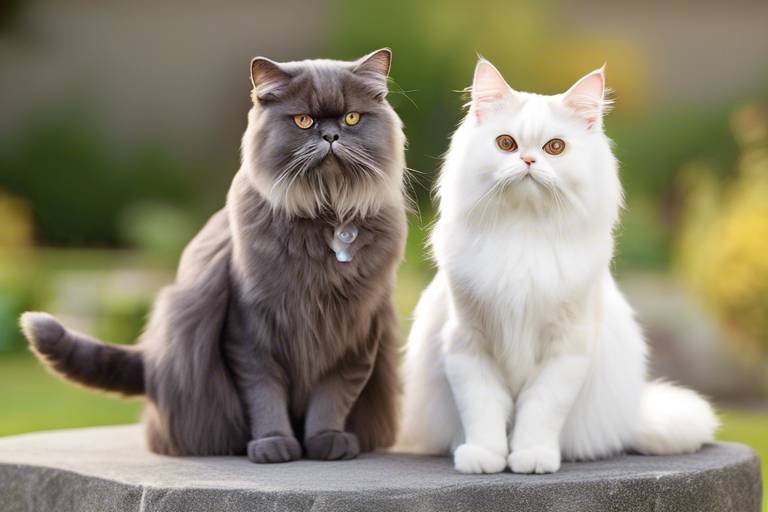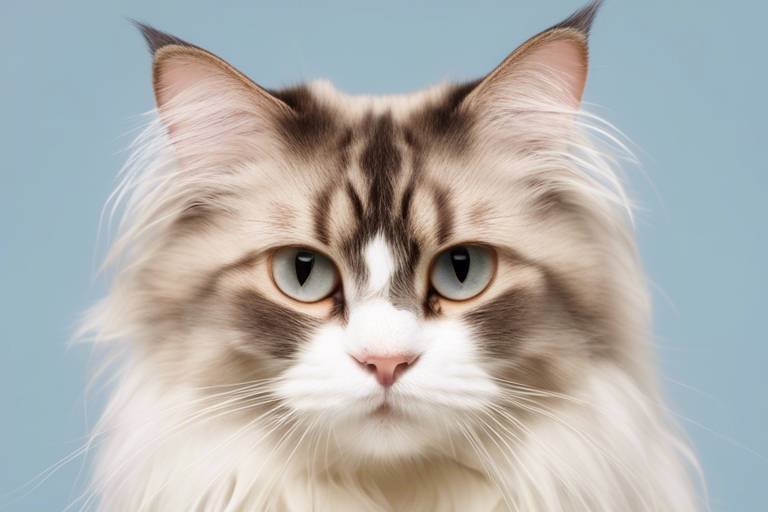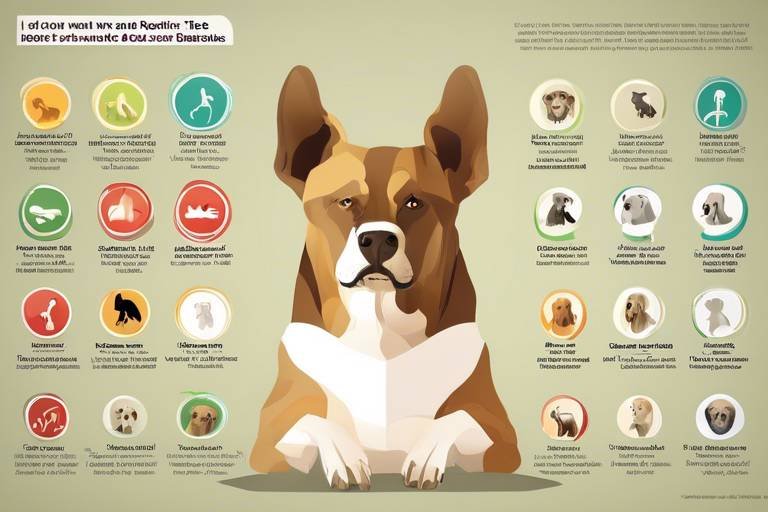The Affectionate Nature of the Pumi
The Pumi dog breed is truly a gem for those seeking a loyal and loving companion. With their unique blend of playfulness and affectionate nature, Pumis have captured the hearts of families and individuals alike. Imagine coming home after a long day, and the moment you step through the door, you’re greeted by a whirlwind of energy and excitement. That’s a typical Pumi welcome! Their lively disposition not only brings joy to their owners but also fosters a sense of companionship that is hard to match.
What makes the Pumi stand out among other breeds is their incredible ability to connect with people. These dogs are not just pets; they are family members who thrive on interaction and love. Whether it’s snuggling on the couch, playing fetch in the backyard, or simply following you around the house, Pumis are always eager to be by your side. This affectionate bond is built on trust and mutual respect, making them exceptional companions for both children and adults.
But what exactly contributes to this loving temperament? Pumis are known for their intelligence and eagerness to please, which makes training and socialization essential. When properly socialized, they grow into well-adjusted dogs that exhibit a friendly demeanor towards both people and other pets. Their playful antics and spirited nature often lead to laughter and joy, creating a vibrant atmosphere in any home.
In this article, we will delve deeper into the Pumi's affectionate nature, exploring their temperament, the bond they form with their owners, and the importance of socialization and training. We’ll also touch on their health and well-being, which are crucial for maintaining their loving behavior. By understanding these aspects, you can ensure that your Pumi remains a happy and affectionate companion for years to come.
The Pumi is known for its affectionate and lively disposition, making it a favorite among dog lovers. This section delves into their friendly nature and how it influences their interactions with people and other pets.
Pumis are renowned for forming strong attachments to their families. This section examines the depth of loyalty and affection they exhibit towards their owners, creating a lasting companionship.
Proper socialization plays a crucial role in nurturing a Pumi's affectionate nature. This subheading discusses effective methods to socialize Pumis, ensuring they grow into well-adjusted, loving pets.
Implementing early training techniques can enhance a Pumi's affectionate behavior. This section outlines training strategies that promote bonding and mutual respect between the dog and its owner.
Utilizing positive reinforcement fosters a loving relationship with your Pumi. Here, we explore various rewarding techniques that encourage affectionate behavior and strengthen the bond.
Pumis are playful dogs that express their affection through fun activities. This subheading highlights the importance of play in enhancing the emotional connection between Pumis and their families.
A healthy Pumi is a happy Pumi. This section discusses the impact of physical and mental well-being on their affectionate nature, emphasizing the importance of regular exercise and mental stimulation.
Proper nutrition significantly affects a Pumi's mood and behavior. This subheading explores dietary considerations that support their affectionate temperament and overall health.
Routine veterinary visits are essential for maintaining a Pumi's health. Here, we discuss how regular check-ups contribute to their affectionate nature by preventing health issues that could affect their behavior.
- What is the best way to socialize a Pumi? Socialization should begin early, exposing your Pumi to various environments, people, and other animals to foster a friendly demeanor.
- How much exercise does a Pumi need? Pumis are active dogs that require daily exercise, including walks, playtime, and mental stimulation to keep them happy and healthy.
- Are Pumis good with children? Yes! Pumis are known for their affectionate nature and typically get along well with children, making them great family pets.
- What type of diet is best for a Pumi? A balanced diet rich in protein, healthy fats, and essential vitamins will support their energy levels and overall well-being.
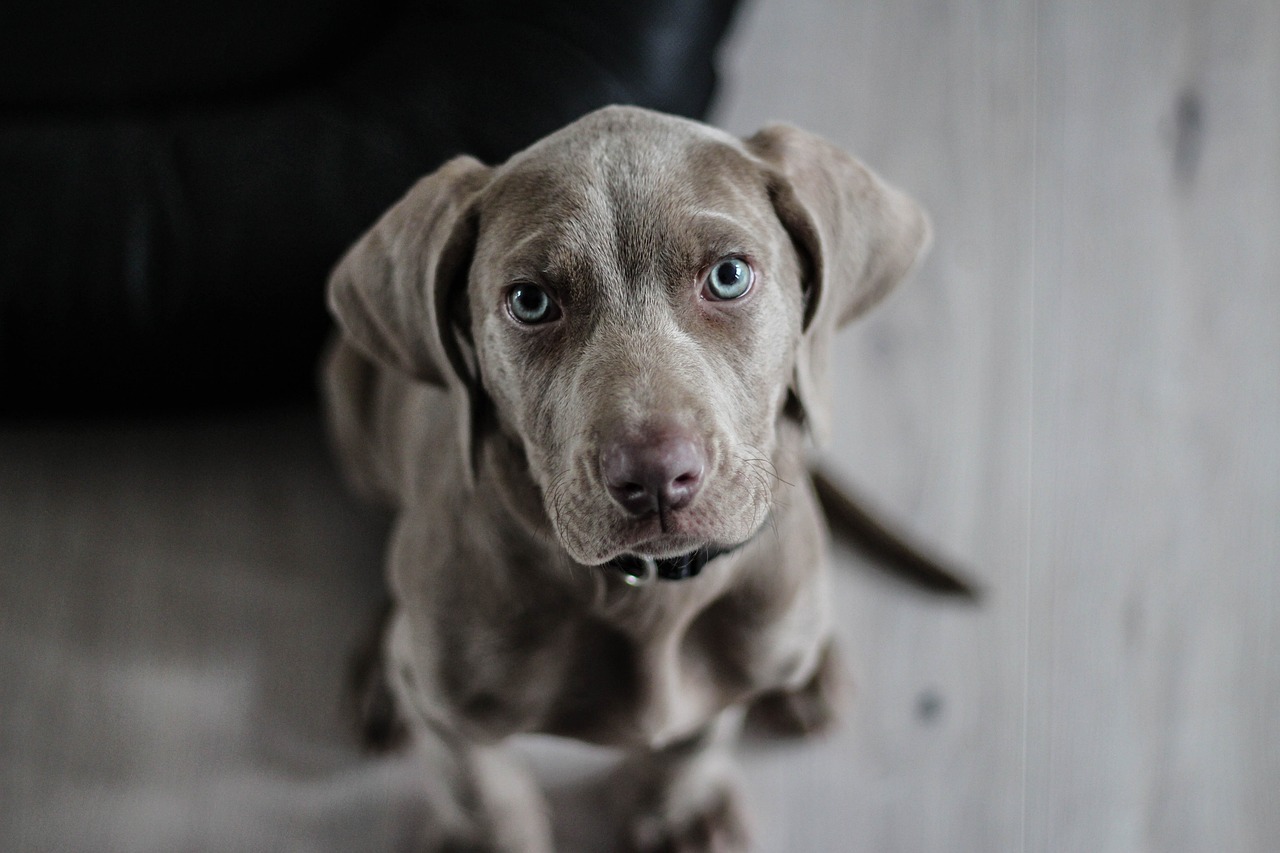
Understanding the Pumi's Temperament
The Pumi is a dog breed that radiates love and joy, making them an absolute delight for families and individuals alike. With their playful antics and affectionate nature, these dogs have a knack for winning hearts wherever they go. Imagine a furry friend who never fails to greet you with a wagging tail and a playful bark; that's the Pumi for you! Their lively disposition is not just a characteristic; it’s a part of their charm that draws people in and creates lasting bonds.
One of the most remarkable aspects of the Pumi's temperament is their friendly nature. They are naturally inclined to be sociable, often treating strangers as potential friends. This openness makes them excellent companions for families with children, as they are generally gentle and patient. However, their sociability extends beyond just humans; Pumis typically get along well with other pets, making them a harmonious addition to multi-pet households. Their playful spirit ensures that they are always ready for a game of chase or a friendly romp in the yard, which is essential for fostering strong relationships with both humans and fellow animals.
Moreover, the Pumi's affectionate nature is deeply rooted in their need for companionship. They thrive on interaction and love being the center of attention. If you’re looking for a dog that will curl up next to you on the couch during movie night or follow you around the house, the Pumi fits the bill perfectly. Their loyalty is unwavering; they often form a strong attachment to their owners, which can lead to a deep emotional bond that lasts a lifetime. This connection is not just one-sided; Pumis have a remarkable ability to sense their owners' emotions, often providing comfort during tough times with their gentle presence.
To truly understand the Pumi's temperament, it’s essential to recognize the importance of socialization. From an early age, exposing them to various environments, people, and other animals can significantly enhance their affectionate nature. A well-socialized Pumi is not only more confident but also more adaptable to different situations, making them a joy to be around. This is where the role of early training comes into play. By implementing effective training techniques, you can nurture their affectionate behavior and ensure they grow into well-adjusted adults.
In summary, the Pumi's temperament is characterized by a delightful mix of playfulness, loyalty, and affection. They are the kind of dogs that can light up a room and bring joy to any household. With the right socialization and training, these dogs can become not just pets but cherished family members who provide unconditional love and companionship.
- What makes Pumis so affectionate? Pumis are naturally social dogs that thrive on interaction, leading to strong bonds with their owners.
- How should I socialize my Pumi? Expose them to different environments, people, and pets from an early age to help them become well-adjusted.
- Are Pumis good with children? Yes, they are generally gentle and patient, making them excellent companions for kids.

The Bond Between Pumi and Owners
The bond between a Pumi and its owner is often described as one of the most profound connections a pet can have with a human. These dogs are not just pets; they are family members who thrive on love, attention, and companionship. Imagine coming home after a long day, and your Pumi greets you with boundless enthusiasm, tail wagging like a propeller. This joyous welcome is just the tip of the iceberg when it comes to the affectionate nature of Pumis.
Pumis are known for their deep loyalty and unwavering affection towards their families. They are incredibly intuitive and can sense the emotions of their owners, often providing comfort during tough times. This empathetic nature makes them exceptional companions, as they can lift your spirits with just a playful bark or a gentle nudge. Their loyalty is not just a trait; it's a way of life for them, and they often form strong attachments to every member of the household.
One of the remarkable aspects of the Pumi's bond with its owners is their playful energy. These dogs are always up for a game of fetch or a playful romp in the yard, which not only keeps them physically active but also strengthens the emotional connection between them and their families. When you engage in play with your Pumi, you're not just having fun—you're building a relationship based on trust, love, and mutual respect.
To further illustrate this bond, consider the following table that highlights some key traits of Pumis that contribute to their affectionate nature:
| Trait | Description |
|---|---|
| Loyalty | Pumis are fiercely loyal to their families, often following their owners around the house and wanting to be involved in every activity. |
| Playfulness | These dogs have a zest for life, making playtime an essential part of their daily routine, which in turn fosters a stronger bond. |
| Empathy | Pumis are highly perceptive and can pick up on their owner's emotions, providing comfort when needed. |
| Affectionate Nature | They express their love through cuddles, playful nudges, and a desire to be close to their humans. |
It's essential to nurture this bond from the very beginning. Early socialization and training play a significant role in helping Pumis develop their affectionate nature. When they are exposed to various environments, people, and other pets, they learn to trust and love more openly. This trust is the foundation of the relationship, allowing for a deep emotional connection that lasts a lifetime.
In essence, the bond between a Pumi and its owner is a beautiful tapestry woven from threads of loyalty, playfulness, and affection. This relationship is not just about having a pet; it's about having a devoted companion who will stand by your side through thick and thin. Whether it's sharing quiet moments on the couch or engaging in energetic outdoor activities, a Pumi enriches the lives of its owners in countless ways.
- How can I strengthen my bond with my Pumi? Regular playtime, positive reinforcement training, and spending quality time together can significantly enhance your relationship.
- Are Pumis good with children? Yes, Pumis are known for their playful and affectionate nature, making them great companions for children.
- What is the best way to socialize my Pumi? Gradual exposure to various environments, people, and pets during their early developmental stages is crucial for proper socialization.
Socialization and Its Importance
Socialization is a crucial aspect of raising a happy and well-adjusted Pumi. Just like humans, dogs thrive on interaction, and for Pumis, early socialization can make all the difference in their affectionate nature. Imagine a puppy experiencing the world for the first time—every new sound, sight, and smell is an adventure! By exposing them to various environments, people, and other animals, you’re not just helping them become well-mannered companions; you’re also nurturing their innate love for connection.
It’s important to introduce your Pumi to different situations gradually. Think of it as building a foundation for a house; without a solid base, the structure can crumble. Start with basic experiences, such as meeting friendly dogs and encountering new people. Gradually increase the complexity of their interactions. For example, take them to a dog park where they can play with other dogs or visit a busy street to get used to the hustle and bustle of city life. This exposure helps them develop confidence and reduces the likelihood of fear-based behaviors, which can hinder their affectionate tendencies.
Moreover, socialization isn't just about exposure; it's about positive experiences. Each interaction should be rewarding, reinforcing the idea that new experiences are fun and safe. You might consider enrolling your Pumi in a puppy class or joining a local dog group. These settings provide structured socialization opportunities and allow your Pumi to learn from both you and other dogs. Remember, the more positive experiences your Pumi has, the more affectionate and trusting they will become.
To summarize, here are some key points on the importance of socialization for Pumis:
- Builds Confidence: Socialization helps Pumis feel secure in different environments.
- Reduces Fear: Early exposure to various stimuli can prevent fearful reactions later in life.
- Enhances Affection: Well-socialized Pumis are more likely to form strong bonds with their families.
- Promotes Good Behavior: Socialized dogs tend to exhibit fewer behavioral issues.
In conclusion, investing time in socializing your Pumi is essential for fostering their affectionate nature. By providing them with a variety of positive experiences, you’re not only enhancing their personality but also ensuring a deeper bond between you and your furry friend. Remember, a well-socialized Pumi is not just a happy dog; they are a loving companion ready to shower you with affection!
Early Training Techniques
When it comes to nurturing the affectionate nature of your Pumi, early training techniques play a pivotal role. Think of training as the foundation of a house; without a solid base, everything else can crumble. Starting early not only helps in establishing good behavior but also strengthens the bond between you and your furry friend. Just like teaching a child, the earlier you start, the more effective it can be. Pumis are intelligent and eager to please, which makes them receptive to learning, especially when the training is fun and engaging.
One effective method is to incorporate positive reinforcement into your training sessions. This means rewarding your Pumi with treats, praise, or playtime whenever they exhibit desired behaviors. For instance, if your Pumi sits on command, shower them with affection and a tasty treat. This not only encourages them to repeat the behavior but also reinforces the loving relationship you share. Remember, Pumis thrive on attention and love, so make sure your training sessions are filled with enthusiasm and joy.
Another technique is to keep training sessions short and sweet. Pumis, like many dogs, have a limited attention span, so aim for sessions that last around 5 to 10 minutes. During these sessions, focus on one or two commands at a time. You might start with basic commands like sit, stay, and come. This way, your Pumi won’t feel overwhelmed, and they’ll be more likely to grasp the commands quickly. Once they master these basics, you can gradually introduce more complex commands.
Additionally, socialization is a crucial aspect of early training. Exposing your Pumi to different environments, people, and other pets can significantly enhance their affectionate nature. Think of it as giving them a passport to the world! Take them to parks, introduce them to friends, or even enroll them in puppy classes. The more experiences they have, the more confident and well-adjusted they will become, which in turn fosters a loving demeanor.
Lastly, consistency is key. Use the same commands and techniques every time you train your Pumi. This consistency helps them understand what is expected of them, reducing confusion and promoting a stronger bond. Imagine trying to learn a new language where the rules change every day; it would be frustrating, right? The same goes for your Pumi. With clear and consistent communication, your training will be much more effective.
In summary, early training techniques not only shape your Pumi's behavior but also enhance the affectionate bond you share. By using positive reinforcement, keeping sessions short, prioritizing socialization, and maintaining consistency, you’re setting the stage for a loving and well-adjusted companion. So, roll up your sleeves, grab some treats, and get ready for some fun training sessions with your Pumi!
Positive Reinforcement Methods
When it comes to nurturing the affectionate nature of your Pumi, positive reinforcement is a game-changer. This approach focuses on rewarding desirable behaviors rather than punishing unwanted ones, creating a supportive environment that encourages your Pumi to express their love and loyalty. Think of it as planting seeds of affection; with the right care, those seeds will blossom into a beautiful bond that lasts a lifetime.
So, what exactly does positive reinforcement look like in practice? It can be as simple as offering a treat when your Pumi sits on command or showering them with praise when they greet you at the door with that adorable wagging tail. The key is to ensure that your pup associates good behavior with something enjoyable. This could include:
- Treats: Small, tasty rewards can motivate your Pumi to learn new tricks or obey commands.
- Verbal Praise: Dogs thrive on attention, so a cheerful "good boy!" or "good girl!" can work wonders.
- Playtime: Incorporating their favorite game or toy as a reward can reinforce affectionate behavior.
Moreover, timing is crucial in positive reinforcement. You want to reward your Pumi immediately after they display the desired behavior. This helps them connect the dots between their actions and the reward, making it easier for them to repeat those behaviors in the future. Imagine telling a child they did well on a test right after they receive their score; the connection is clear, and they’re likely to study harder next time!
Additionally, consistency is vital. If you reward your Pumi for sitting on command today but ignore them tomorrow for the same action, it can create confusion. Establish a routine where your Pumi knows what to expect. This consistency not only helps them learn but also builds trust in your relationship. They’ll come to understand that good behavior leads to positive outcomes, reinforcing their affectionate nature.
As your Pumi becomes more adept at following commands and displaying affection, you can start to phase out treats gradually. You can replace them with praise or playtime, ensuring that the bond you’ve built remains strong without relying solely on food rewards. This transition is like moving from training wheels to riding a bike; it’s a natural progression that fosters independence while maintaining a loving connection.
Lastly, remember that every Pumi is unique. Some may respond better to verbal praise, while others might prefer treats or playtime. Pay attention to what makes your furry friend light up and adjust your methods accordingly. By personalizing your approach, you’re not just teaching them commands; you’re deepening your emotional connection, making your Pumi feel cherished and understood.
Q: How long should I use treats for positive reinforcement?
A: You can use treats as long as necessary, but gradually reduce their frequency as your Pumi learns the desired behavior. Transition to verbal praise or playtime to maintain the bond.
Q: Can I use negative reinforcement instead?
A: While negative reinforcement can sometimes yield results, it often leads to fear and anxiety. Positive reinforcement is a more effective approach for nurturing a loving relationship.
Q: What if my Pumi doesn’t seem motivated by treats?
A: Every dog is different! Experiment with various rewards, such as toys, praise, or even extra playtime, to discover what motivates your Pumi the most.
Playfulness and Affection
The Pumi is not just a dog; it’s a bundle of joy wrapped in fur! These dogs are known for their playful nature, which serves as a delightful expression of their affection. Imagine coming home after a long day, and there they are, tail wagging like a propeller, ready to shower you with love and energy. Their playful antics can turn even the dullest day into a joyous occasion. Whether it's a game of fetch in the backyard or a spirited chase around the living room, Pumis thrive on interaction, making every moment spent with them feel special.
One of the most endearing traits of the Pumi is how they use play as a means of bonding. When you engage in fun activities with your Pumi, you’re not just playing; you’re strengthening your emotional connection. This playful interaction helps them feel secure and loved, creating a sense of belonging. They often exhibit their affection through playful behavior, such as bringing you their favorite toy or playfully nudging your hand with their nose, inviting you to join in on the fun.
Moreover, Pumis are natural clowns. Their quirky personality shines through when they’re in a playful mood. They may perform silly tricks or engage in funny antics that will have you laughing out loud. This humor not only entertains but also fosters a deeper bond between you and your furry friend. It’s like having a little comedian in your home, always ready to bring a smile to your face!
To keep the playful spirit alive, it’s essential to incorporate a variety of activities into their routine. Here are some ideas:
- Interactive Toys: Toys that challenge their mind can keep them entertained for hours.
- Agility Training: Setting up a mini obstacle course can be a fun way to exercise both their bodies and minds.
- Daily Walks: Regular walks not only provide physical exercise but also stimulate their senses.
In essence, the playful nature of the Pumi is a significant contributor to their affectionate temperament. By engaging in play, you’re not just having fun; you’re nurturing a loving relationship that will last a lifetime. So, grab that toy, head to the park, and let the games begin! Your Pumi is waiting, and their love for you is just a game away.
Q: How can I encourage my Pumi to be more playful?
A: Engaging in regular playtime, introducing new toys, and varying activities can encourage your Pumi to embrace their playful side.
Q: Are Pumis good with children?
A: Absolutely! Pumis are known for their friendly and playful demeanor, making them excellent companions for children.
Q: What are some favorite games for Pumis?
A: Pumis enjoy games like fetch, tug-of-war, and hide-and-seek, which allow them to express their playful nature and bond with their owners.
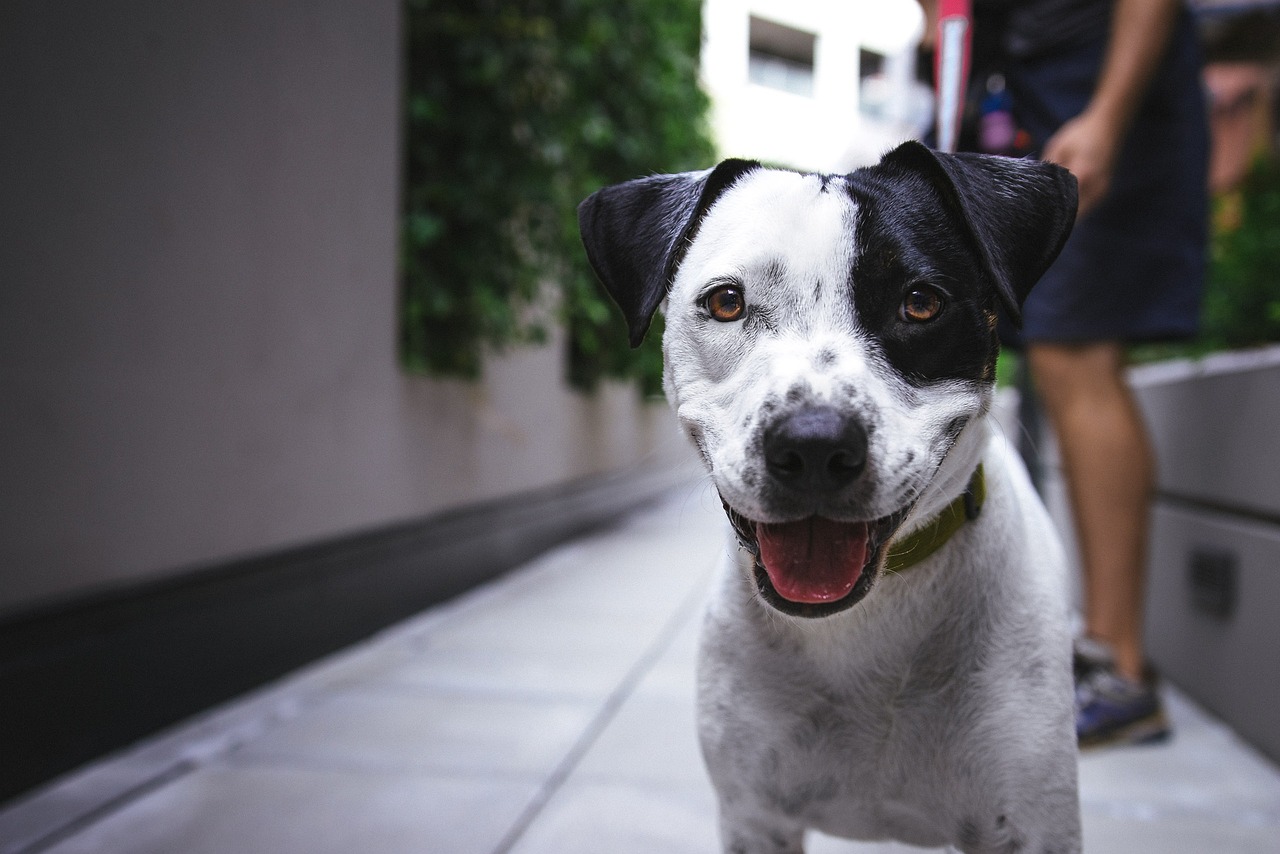
Health and Well-being of Pumis
The health and well-being of your Pumi are paramount, not just for their longevity but also for nurturing that loving temperament that makes them such delightful companions. A healthy Pumi is a happy Pumi, and their emotional state is often intertwined with their physical health. Regular exercise, mental stimulation, and a balanced diet contribute significantly to their overall happiness and affection levels. Just like humans, dogs thrive when they feel good both physically and mentally!
One of the key aspects of ensuring your Pumi remains healthy is to provide them with regular exercise. These energetic dogs require daily physical activity to keep their spirits high and their bodies in shape. Whether it's a brisk walk, a game of fetch, or even agility training, keeping your Pumi active is essential. Not only does this help maintain a healthy weight, but it also reduces the risk of behavioral issues that can arise from pent-up energy. Think of exercise as a way to fuel their affectionate nature—the more they play and run, the more love they have to give!
Moreover, mental stimulation is just as critical as physical activity. Pumis are intelligent and curious, so engaging their minds with puzzles, interactive toys, or training sessions can greatly enhance their well-being. These activities not only challenge them but also strengthen the bond between you and your furry friend. When you see them solving a puzzle or learning a new trick, you can almost see the pride in their eyes, which is a testament to their affectionate spirit.
Another vital component to consider is nutrition. Just like us, a Pumi's mood and behavior can be significantly affected by what they eat. A well-balanced diet rich in high-quality proteins, healthy fats, and essential vitamins is crucial for maintaining their energy levels and overall health. Here’s a quick look at some dietary considerations:
| Food Type | Benefits |
|---|---|
| High-quality protein | Supports muscle development and energy levels |
| Healthy fats | Promotes a shiny coat and healthy skin |
| Fruits and vegetables | Provides essential vitamins and antioxidants |
Lastly, don't overlook the importance of regular veterinary check-ups. Routine visits to the vet can help catch potential health issues before they become serious. Just as you wouldn't ignore a check-up for yourself, your Pumi deserves the same attention. Regular health screenings not only keep your dog in top shape but also offer peace of mind, allowing you to focus on enjoying all the affectionate moments together.
In conclusion, the health and well-being of your Pumi are crucial for maintaining their playful, loving nature. By ensuring they receive adequate exercise, mental stimulation, proper nutrition, and regular vet visits, you’ll be fostering a happy, affectionate companion who brings joy to your life every day.
- What is the average lifespan of a Pumi? Pumis typically live between 12 to 15 years with proper care.
- How much exercise does a Pumi need? Pumis require at least 1 hour of exercise daily to stay healthy and happy.
- Are Pumis good with children? Yes, Pumis are known for their playful and affectionate nature, making them great companions for children.
- What should I feed my Pumi? A balanced diet rich in high-quality proteins, healthy fats, and fresh fruits and vegetables is ideal.
Nutrition for Affectionate Behavior
When it comes to the affectionate nature of Pumis, nutrition plays a surprisingly vital role. Just like humans, dogs thrive on a balanced diet that fuels their bodies and minds. Imagine trying to be your best self on an empty stomach; it's no different for our furry friends! A well-nourished Pumi is not only happier but also more inclined to express their love and loyalty. So, what should you be feeding your Pumi to ensure they remain the playful, affectionate companions we adore?
First off, it's essential to focus on high-quality dog food that meets their specific needs. Pumis are energetic and require a diet rich in proteins, healthy fats, and essential nutrients. Look for dog food that lists meat as the first ingredient; this ensures that your Pumi is getting the protein necessary for muscle development and energy. Whole grains, fruits, and vegetables should also be part of their diet, as these provide vital vitamins and minerals that contribute to their overall well-being.
Additionally, consider including some homemade meals into their diet. This not only allows you to control the ingredients but also adds variety to their meals, keeping them excited about food. Just remember to avoid common toxic foods such as chocolate, grapes, and onions. A well-rounded diet can lead to a healthier, happier Pumi, which in turn fosters a deeper emotional bond between you and your pet.
| Nutrient | Importance | Sources |
|---|---|---|
| Protein | Essential for muscle development and energy | Chicken, beef, fish |
| Healthy Fats | Supports skin and coat health | Fish oil, chicken fat |
| Vitamins & Minerals | Boosts immune system and overall health | Fruits, vegetables, whole grains |
Moreover, hydration is a critical aspect of your Pumi's diet. Always ensure they have access to fresh, clean water. Dehydration can lead to lethargy and irritability, which are not conducive to an affectionate demeanor. When your Pumi feels good physically, they are more likely to express their love and joy. It’s amazing how something as simple as water can impact their mood and behavior!
In conclusion, paying attention to your Pumi's nutrition is a fundamental step in nurturing their affectionate behavior. By providing a balanced diet filled with the right nutrients, you are not only ensuring their physical health but also enhancing their emotional well-being. Remember, a happy dog is a loving dog, and it all starts with what’s in their bowl!
- What is the best food for a Pumi? Look for high-quality dog food that lists meat as the first ingredient and includes wholesome grains, fruits, and vegetables.
- Can I feed my Pumi homemade meals? Yes, homemade meals can be beneficial, but ensure they are balanced and avoid toxic foods.
- How much water does my Pumi need? Always provide access to fresh water; hydration is crucial for their health and mood.
- Are there specific supplements I should consider? Consult your vet for recommendations, particularly for omega-3 fatty acids or specific vitamins based on your Pumi's health needs.
Regular Vet Check-ups
When it comes to ensuring your Pumi's affectionate nature thrives, are absolutely crucial. Just like we need our annual physicals to stay in tip-top shape, our furry friends require the same kind of attention to maintain their health and happiness. Imagine trying to be your best self while feeling under the weather; it’s the same for your Pumi. A healthy dog is a happy dog, and a happy dog is more likely to shower you with love and affection.
During these check-ups, veterinarians assess your Pumi's overall health, checking for any underlying issues that might not be immediately visible. They will look at their weight, dental health, and even conduct blood tests if necessary. This proactive approach can prevent minor issues from escalating into significant problems that could hinder your dog’s playful spirit and loving demeanor.
Moreover, vaccinations are a vital part of these visits. Keeping your Pumi vaccinated not only protects them but also ensures that they can interact freely with other dogs and people without the fear of transmitting or contracting diseases. This social interaction is essential for maintaining their affectionate nature, as Pumis thrive on companionship.
Another aspect of regular vet visits is the opportunity for you to ask questions about your Pumi's behavior and health. If you've noticed your dog acting differently—perhaps being less playful or more withdrawn—this is the perfect time to discuss those changes with your vet. They can provide insights or recommendations that might help you better understand your Pumi's needs.
To further emphasize the importance of these check-ups, here’s a quick overview of what a typical vet visit entails:
| Check-up Component | Description |
|---|---|
| Physical Examination | Assessment of overall health, including weight, coat condition, and mobility. |
| Vaccinations | Administering necessary vaccines to prevent diseases. |
| Dental Check | Examining teeth and gums for signs of dental disease. |
| Behavioral Consultation | Discussing any behavioral changes or concerns with the owner. |
In summary, regular vet check-ups are more than just a routine; they are a fundamental part of keeping your Pumi healthy and ensuring they can express their affectionate nature fully. By prioritizing these visits, you’re not just investing in your dog's health, but also in the joy and love they bring into your life. So, when was the last time you scheduled a vet appointment for your furry friend? Don’t wait until something goes wrong—make it a regular part of your Pumi's life!
- How often should I take my Pumi to the vet? It is generally recommended to have a check-up at least once a year, but puppies and older dogs may need more frequent visits.
- What should I expect during a vet visit? Expect a thorough examination, vaccinations, and a discussion about your dog's health and behavior.
- Can I ask my vet about behavioral issues? Absolutely! Your vet can provide valuable insights and suggestions for addressing any concerns.
- Are there any specific vaccinations Pumis need? Yes, your vet will recommend vaccinations based on your Pumi's age, health, and lifestyle.
Frequently Asked Questions
- What is the temperament of a Pumi?
The Pumi is known for its affectionate and playful nature. They are lively dogs that thrive on interaction with their families and are generally friendly towards people and other pets. Their energetic disposition makes them great companions, always ready for fun and games.
- How do Pumis bond with their owners?
Pumis form strong attachments to their families, showcasing deep loyalty and affection. This bond is nurtured through regular interaction, playtime, and training. They often seek companionship and enjoy being part of family activities, making them feel like a vital member of the household.
- Why is socialization important for Pumis?
Socialization is crucial for Pumis as it helps them develop into well-adjusted and loving pets. Early exposure to various environments, people, and other animals enhances their friendly nature and reduces the likelihood of behavioral issues. Proper socialization ensures they grow up to be confident and affectionate companions.
- What training methods work best for Pumis?
Early training techniques that focus on positive reinforcement are particularly effective with Pumis. Rewarding desired behaviors with treats, praise, or play encourages them to learn and strengthens the bond between you and your dog. This approach fosters mutual respect and affection.
- How does play influence a Pumi's affectionate nature?
Play is essential for Pumis as it not only provides physical exercise but also enhances the emotional connection with their families. Engaging in fun activities together helps Pumis express their affection and strengthens their bond with their owners, making playtime a vital part of their daily routine.
- What should I consider for my Pumi's nutrition?
Proper nutrition is key to maintaining a Pumi's health and mood. A balanced diet supports their energetic lifestyle and can positively affect their affectionate behavior. It's important to choose high-quality dog food that meets their specific nutritional needs to keep them happy and healthy.
- How often should I take my Pumi to the vet?
Regular veterinary check-ups are essential for a Pumi's health. These visits help prevent health issues that could impact their behavior and affectionate nature. Keeping up with vaccinations, dental care, and overall health assessments ensures your Pumi remains a happy and loving companion.



